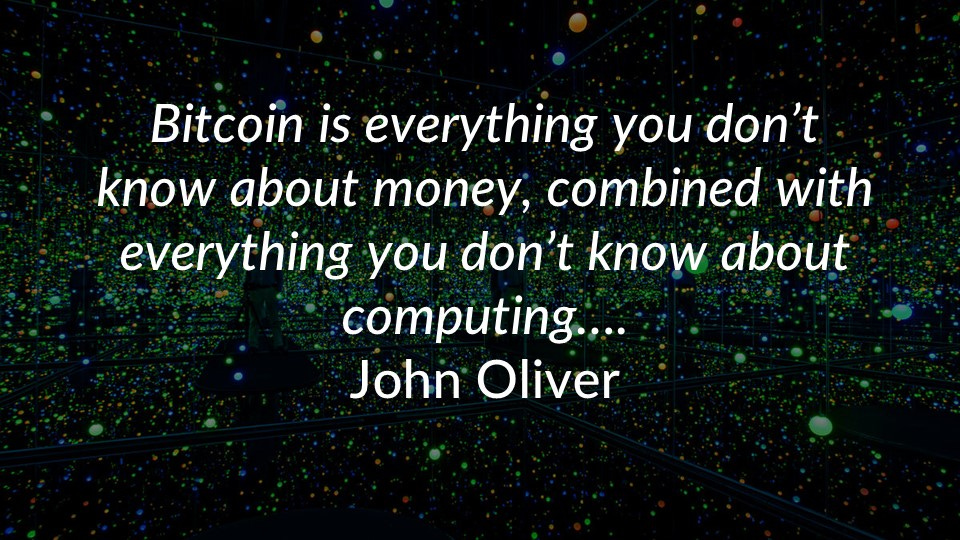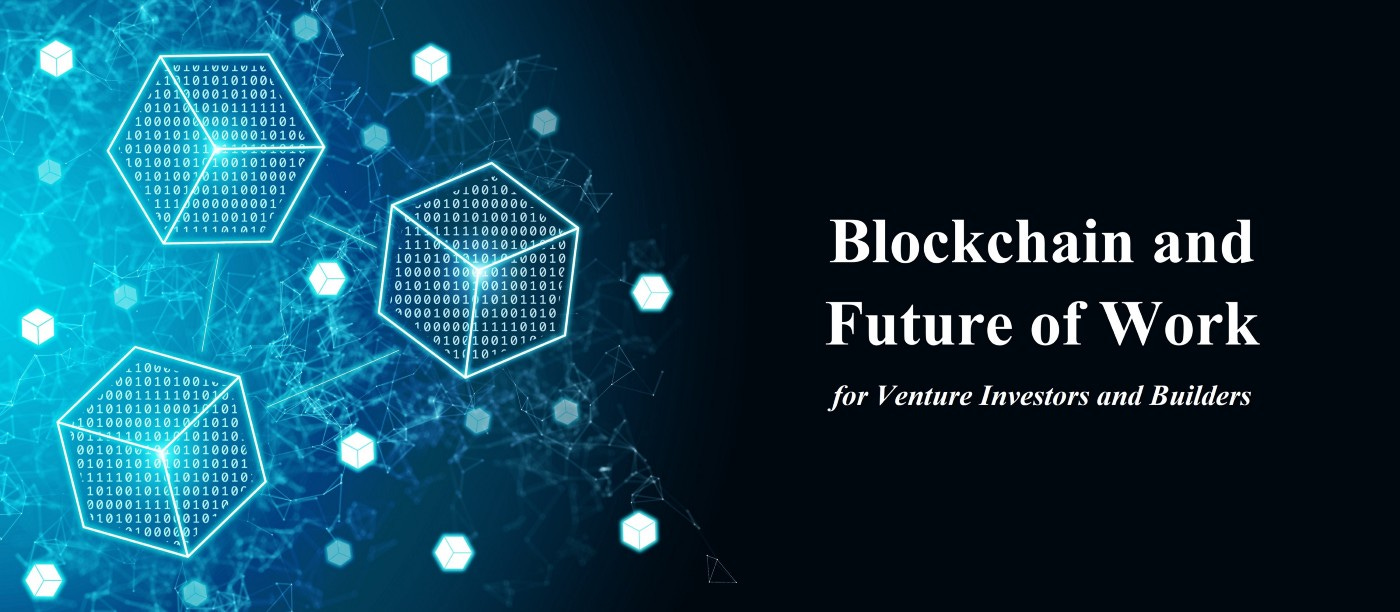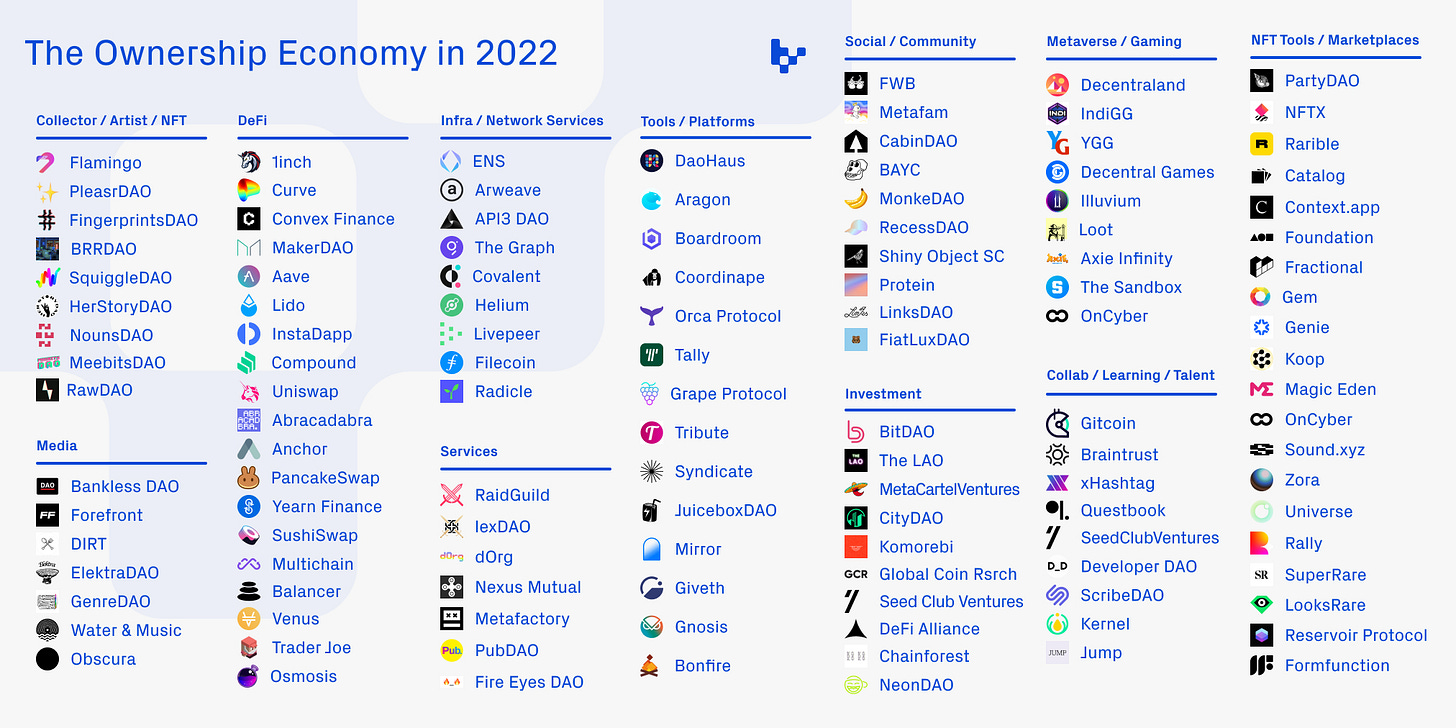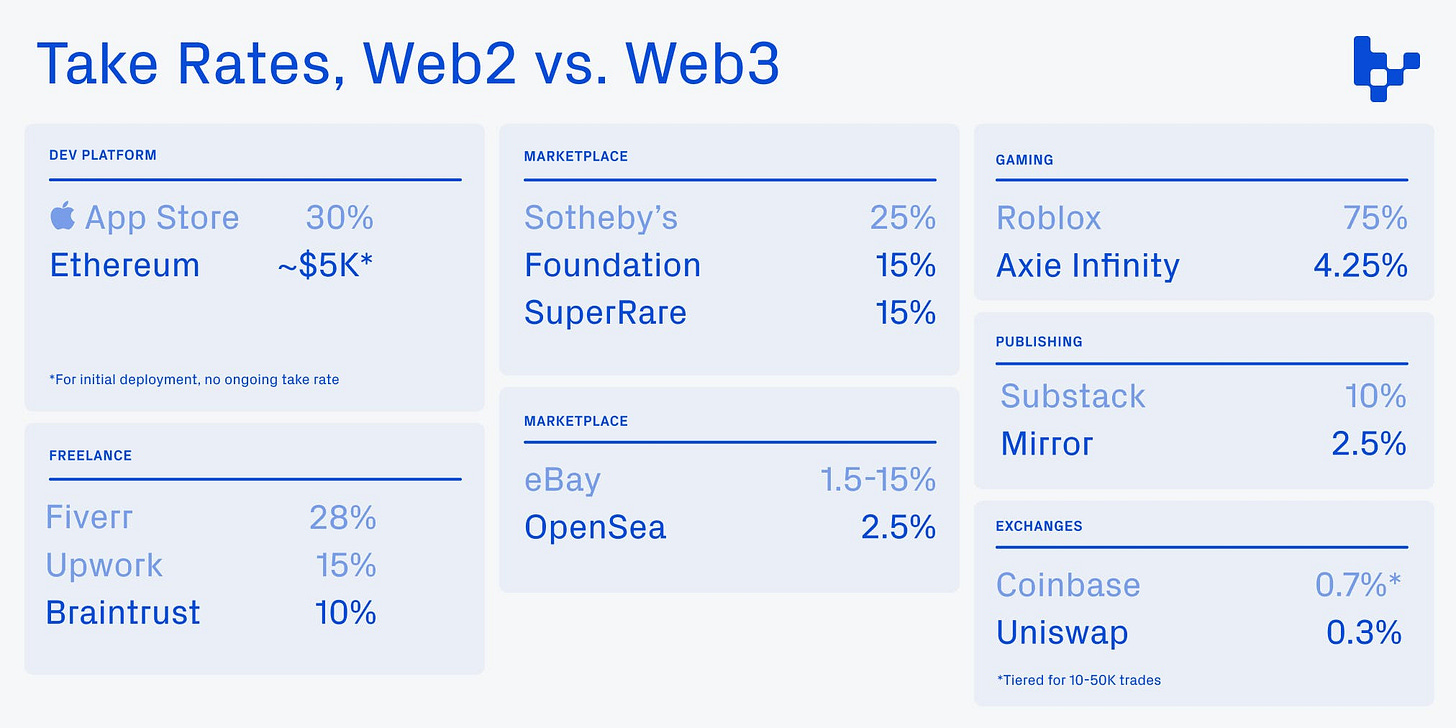Why You Don't Understand Web3
#WF30 Blockchain and the Future of Work, The Ownership Economy, The Web3 Talent Gap
You are reading Workforce Futurist, news and views on the rapidly changing world of work.
This week I look at the challenges of communicating in a Web3 world, the ownership economy, blockchain and the future of work and some resources for those heading down the Web3 rabbit 🐰 hole…
Bitcoin is Everything you don’t know about money, combined with Everything you don’t know about computing. John Oliver.
What is Bitcoin anyway?
We’ve all had this conversation over the years.
The topic tends to bounce around a broad area, from the theory of money, to the nuances of database design and crazy conspiracy theories.
The claims are broad too ;-
it will make us rich/removes the need for governments/banks the unbanked.
I’ve been to enough blockchain meet-ups in the back-rooms of London pubs to know that ‘crypto’ concepts are broad enough to project the pet theories of anarchists, technologists, libertarians, investors, marxists, and altruists.
The truth is crypto can be anything you want it to be.
WTF is Web3?
What is Web3 anyway?
I have been trying to explain Web3 concepts for about five years now.
The terminology has changed, but the concepts haven’t.
We are slowly moving to a new generation of technology where we have better control over our personal data. This transition has some similarities to the transition to the internet in the 1990s and 2000s. It will impact everything to do with how data is handled, it will change business models and how we work, it will eventually change economies, society and education.
In the absence of definitions, we are moving slowly from :-
web1 - like reading a magazine in the 1990s (read)
web2 - like writing a blog in the 2000s (read and write)
web3 - like writing a blog, monetising it and sharing equity with others. (read/write/own)
What do I need to know about Web3?
“I am under no obligation to make sense to you.” Mad Hatter, Alice in Wonderland.
My personal Web3 learning journey has taken me down some intellectual rabbit 🐰holes. From having speeches censored in Shanghai to shaking the hand of Satoshi (one of them 😉). I have written papers with the BRI, developed popular eLearning courses and worked with start-ups and industry consortiums.
Nobody understands the impact of crypto or Web3.
It’s a swirling and complex set of undeveloped ideas touching on technology, economics, sociology.
Sometimes these ideas appear conflicting.
We get lots of cognitive dissonance (in my DMs at least).
“Is banking the unbanked worth it if Bitcoin uses the same energy as Spain?”
“How can we have decentralised CVs if blockchain is immutable?”
“How can I use the same currency as the mafia!?”
I will not attempt to answer these conundrums now!
Like the transition to the internet in 1995, we don’t know how Web3 will play out.
Understanding Web3
Here are some pointers to understanding Web3, for now.
Bitcoin is just one use of blockchain - there are many others, in the world of work, this might include verifying degree certificates or employment history on decentralised databases.
Try and ignore the noise - from the coin shillers and various platform cults,
“I have left Web2 forever!” Some of the start-ups mentioned in my research from 5 years ago have gone on to build some of the foundation blocks of Web3 and created new business models e.g. Dock, ChronoTech, Zinc. These pioneers don’t get involved in Web2 vs Web3 debates - they are quietly building new businesses and technology.
Skip the courses on advanced database design and cryptography - in 1995, it wasn’t particularly helpful to learn to code HTML to understand the impact of internet business models.
Focus on an industry you know well and how it uses data. What will happen when users control their data, and can monitise it? See examples from the world of work below…
Blockchain and the Future of Work
Karl Osis does a good job of explaining blockchain and the world of work.
It’s a long read at over 10,000 words, with a very good reference list!
TLDR here are some of the key findings :-
We should be awake to the potential for a technological shift comparable to the adoption of the internet as roughly one in 20 venture investments in 2021 went to crypto startups
Crypto allows access to x-to-earn income streams, including play-to-earn, which may have the best chance of triggering broad adoption (and may even lead society into the metaverse)
The use of tokens in web3 transforms the dynamic between founders, talent, investors, vendors, customers, and other key stakeholders
Venture capital is among the industries beginning to see DAOs as competition with the potential for DAOs and tokens to disrupt the existing business model
The last point was a brave one written by an investor, but I find it intriguing as it lowers the barriers to equity for more people.
You can read the full article here.
You will notice that this article is on Blockchain and the Distributed Workforce Magazine on Medium. I started this in 2018, and always open to guest posts for budding scribes, or Web3 start-ups - just reply to this email (if you’re a subscriber).
The Ownership Economy - A Primer on the State of Web3
Ownership has long been embraced by Silicon Valley startups to align incentives among employees through option grants. Still, the vast majority of internet users own exactly 0% of the services they contribute to.
Regular Workforce Futurist readers will have read that workers want more flexibility, autonomy and equity. An increasing proportion of workers make a living from platforms, but don’t have any equity or say in how’s the platforms are run. This is changing, and Web3 technology is helping.
This Ownership Economy article is a good account of what’s going on with the tokenisation of platforms, written by another investment team.
There are some that think the The Ownership Economy is so-called because VCs want to own most of it 🙂 but this report is about “products and services that turn users into owners”.
They note that the market capitalization of over 19,000 tokens is $1.76 trillion.
For comparison, the market capitalization of global stock markets is over $100 trillion.
The authors also note the trends in take rates in talent platforms like Fiverr (28%) and Upwork (15%) compared to Braintrust (10%) which is a step in the right direction.
Read the article here.
The Web3 Talent Gap
In the world of work and tech, every week I hear of people joining a fast-moving Web3 company.
You will notice that anyone with blockchain techy skills, or community building, or tokenomics are in demand…
Ana Andjelic illustrates some of the challenges of finding the right Web3 talent in the retail industry. Her take :-
It’s not just about a Web3 skillset, it’s about the Web3 mindset
Get your head around what Web3 means in your industry, and then join the teams that are building it.
Do share with me how Web3 is impacting your industry.






